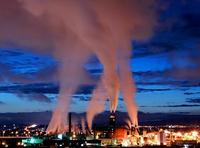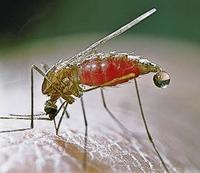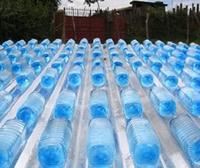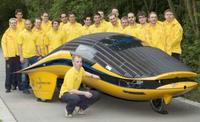-
Emergency cleanup plans for potential Cuban oil spill
With Cuba set to begin offshore drilling, the former head of the Environmental Protection Agency (EPA) is pressing the United States to immediately begin developing emergency plans to assist Cuba in the event of a major oil spill
-
-
Earthquake prediction, a holy grail of science
Predicting earthquakes has proven to be an elusive pursuit for scientist and the mainstream consensus is that it will never happen, but one group remains hopeful; unlike the majority of geologists, who now believe it is nearly impossible to accurately predict earthquakes, those still searching for solutions tend to work in physics and atmospheric science
-
-
Swiss nuclear energy phase-out possible

In the wake of Germany’s decision to abandon nuclear power generation, other countries have also been examining that option; a respected Swiss research center looked into the mater, finding that restructuring the Swiss energy system without nuclear power by 2050 is in principle technologically possible and economically manageable
-
-
Environmentalists challenge DHS border base expansion plan
Environmentalist groups challenge a plan by DHS to build a new border patrol base on National park Service Land in Arizona, near the U.S.-Mexico border; the groups argue that DHS fails adequately to assess the effects of the department’s border-security and enforcement activities along the U.S.-Mexico border, including tripling the size of its base in the desert
-
-
Cutting soot emissions fastest, cheapest way to slow warming
Reducing soot emissions from diesel engines and other sources could slow melting of sea ice in the Arctic faster and more economically than any other quick fix; the good news is that decreasing soot could have a rapid effect — unlike carbon dioxide, which remains in the atmosphere for years, soot disappears within a few weeks, so that there is no long-term reservoir with a continuing warming effect
-
-
Molecules could help solve radioactive waste concerns
One component of nuclear waste — called “minor actinides” — present an extreme hazard as they are intensely radioactive and long-lived nuclides; they must be safely stored for at least 100,000 years; researchers have discovered a class of molecules that can selectively extract minor actinides, making the eventual waste far less radiotoxic
-
-
Artificial volcanoes to reverse global warming

British scientists are investigating a method to reverse the effects of climate change by creating an artificial volcano and suspending it 12.5 miles above the earth; the team’s goal is to recreate the cooling effect that a volcano has when it releases millions of tiny particles into the stratosphere that bounce some of the Sun’s rays back into space
-
-
The malaria mosquito is disappearing – researchers wonder why

The incidence of malaria in many African countries south of the Sahara is falling rapidly; a research group has discovered that the mosquito carrying the malaria parasite has practically disappeared from villages without organized mosquito control; there are several hypotheses about the cause of the decline, but without proper data researchers cannot say whether malaria is being eradicated or whether it is just resting up before returning with renewed vigor
-
-
Common bacterium stops mosquitoes from transmitting Dengue virus
Strains of a bacterium commonly found in fruit flies can prevent the Aedes aegypti mosquito from transmitting the virus that causes dengue fever, researchers have found; the discovery could lead to a more effective way to control dengue worldwide
-
-
Storing CO2 underground to extract electricity
A team of scientists, led by the Berkeley Lab, hopes to become the first in the world to produce electricity from the Earth’s heat using CO2; They also want permanently to store some of the CO2 underground, where it can not contribute to climate change
-
-
Towing icebergs to provide fresh water for parched regions

A third of the world’s population — more than two billion people — lives without access to clean drinking water, and studies show that the situation will only get worse; a French innovator has an idea: towing icebergs from the Greenland and Antarctica to regions most in need of fresh water; a computer simulation shows this solution to be viable and affordable
-
-
Solar-based method to provide safe water

A revolutionary low-cost technique that uses sunshine to provide safe drinking water; solar disinfection (SODIS) of drinking water is an effective way of preventing water-borne diseases such as cholera, dysentery or polio — especially important in developing countries, where safe drinking water is often a precious rarity
-
-
Market forces to help reduce emission, increase storage of CO2
New computer modeling work shows that by 2100, if society wants to limit carbon dioxide in the atmosphere to less than 40 percent higher than it is today, the lowest-cost option is to use every available means of reducing emissions — including using forests to store carbon
-
-
Melting ice sheets release toxic pollutants outlawed in 2001
The melting of arctic ice sheets causes the rise in sea levels — but there is another danger: the melting causes dangerous chemicals, including the notoriously toxic DDT, to be freed from Arctic sea ice and snow; the chemical — known as “persistent organic pollutants” (POPs) — were widely used as insecticides and pesticides before being outlawed in 2001; they are extremely tough molecules that take decades to break down in nature; they also bio-accumulate, meaning that as they pass up the food chain, concentrations rise, posing a fertility threat to higher species
-
-
Cambridge U team intends to win the 2011 World Solar Challenge

The World Solar Challenge, the “Formula One” of eco-friendly motorsport, consists of a 3,000 kilometer race across the Australian outback from Darwin to Adelaide; it will be held 16-23 October 2011; the University of Cambridge team believes it has a real chance to win with their newly designed Cambridge University Eco Racing (CUER) machine
-
- All
- Regional
- Water
- Biometrics
- Borders/Immig
- Business
- Cybersecurity
- Detection
- Disasters
- Government
- Infrastructure
- International
- Public health
- Public Safety
- Communication interoperabillity
- Emergency services
- Emergency medical services
- Fire
- First response
- IEDs
- Law Enforcement
- Law Enforcement Technology
- Military technology
- Nonlethal weapons
- Nuclear weapons
- Personal protection equipment
- Police
- Notification /alert systems
- Situational awareness
- Weapons systems
- Sci-Tech
- Sector Reports
- Surveillance
- Transportation
Advertising & Marketing: advertise@newswirepubs.com
Editorial: editor@newswirepubs.com
General: info@newswirepubs.com
2010-2011 © News Wire Publications, LLC News Wire Publications, LLC
220 Old Country Road | Suite 200 | Mineola | New York | 11501
Permissions and Policies
Editorial: editor@newswirepubs.com
General: info@newswirepubs.com
2010-2011 © News Wire Publications, LLC News Wire Publications, LLC
220 Old Country Road | Suite 200 | Mineola | New York | 11501
Permissions and Policies
